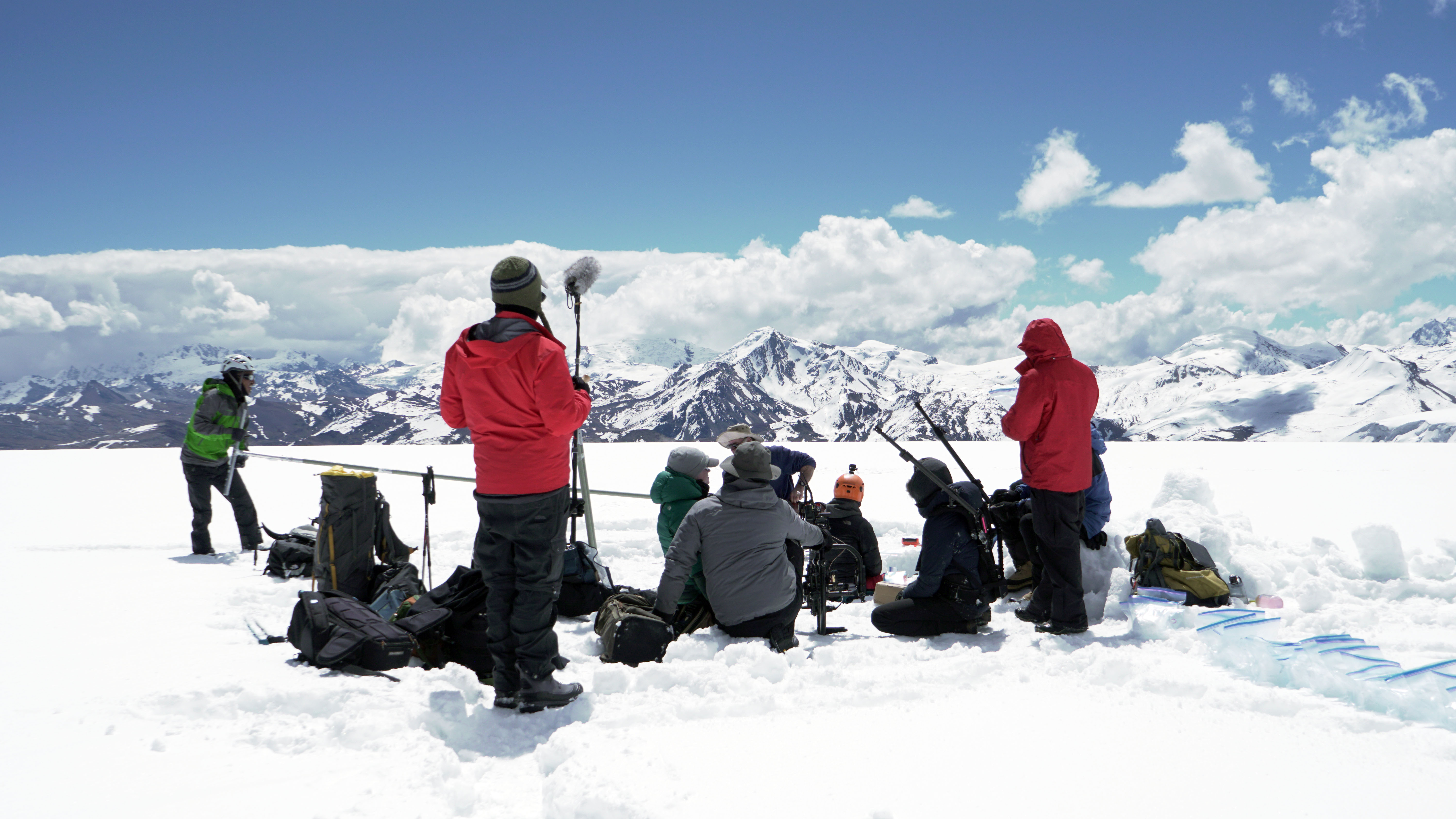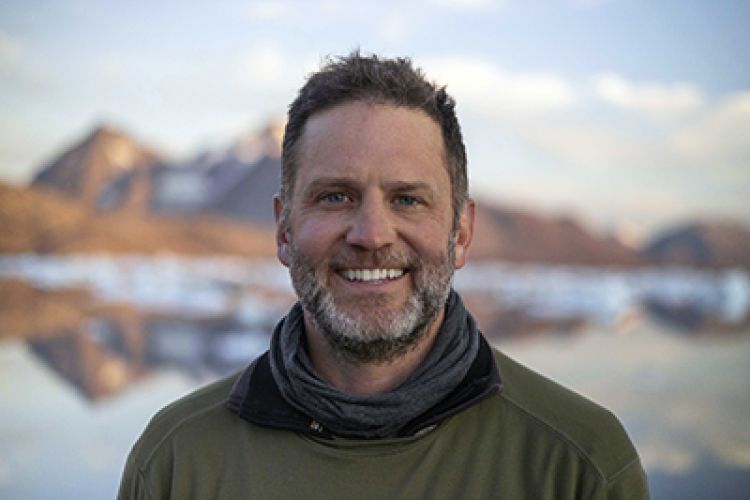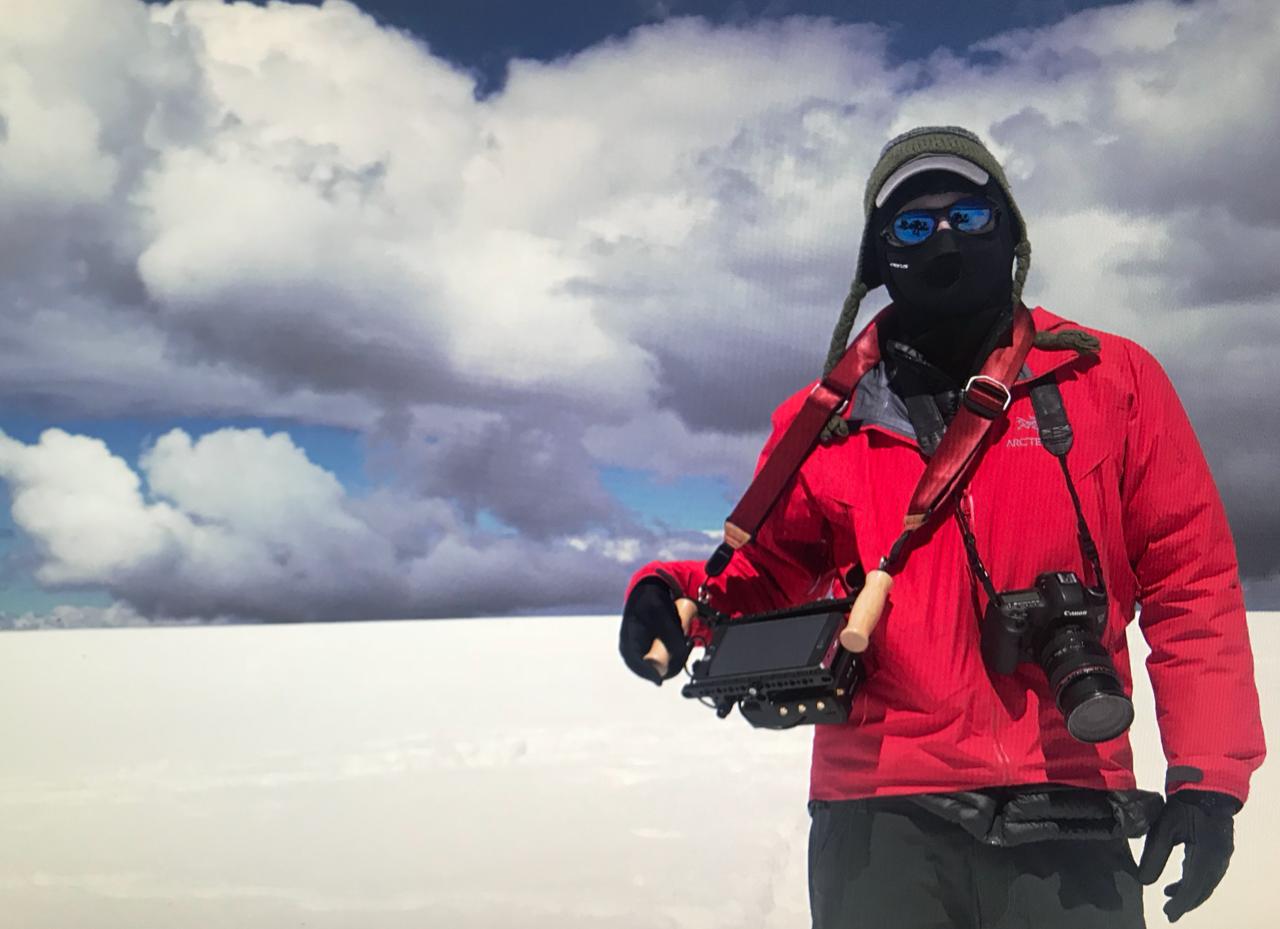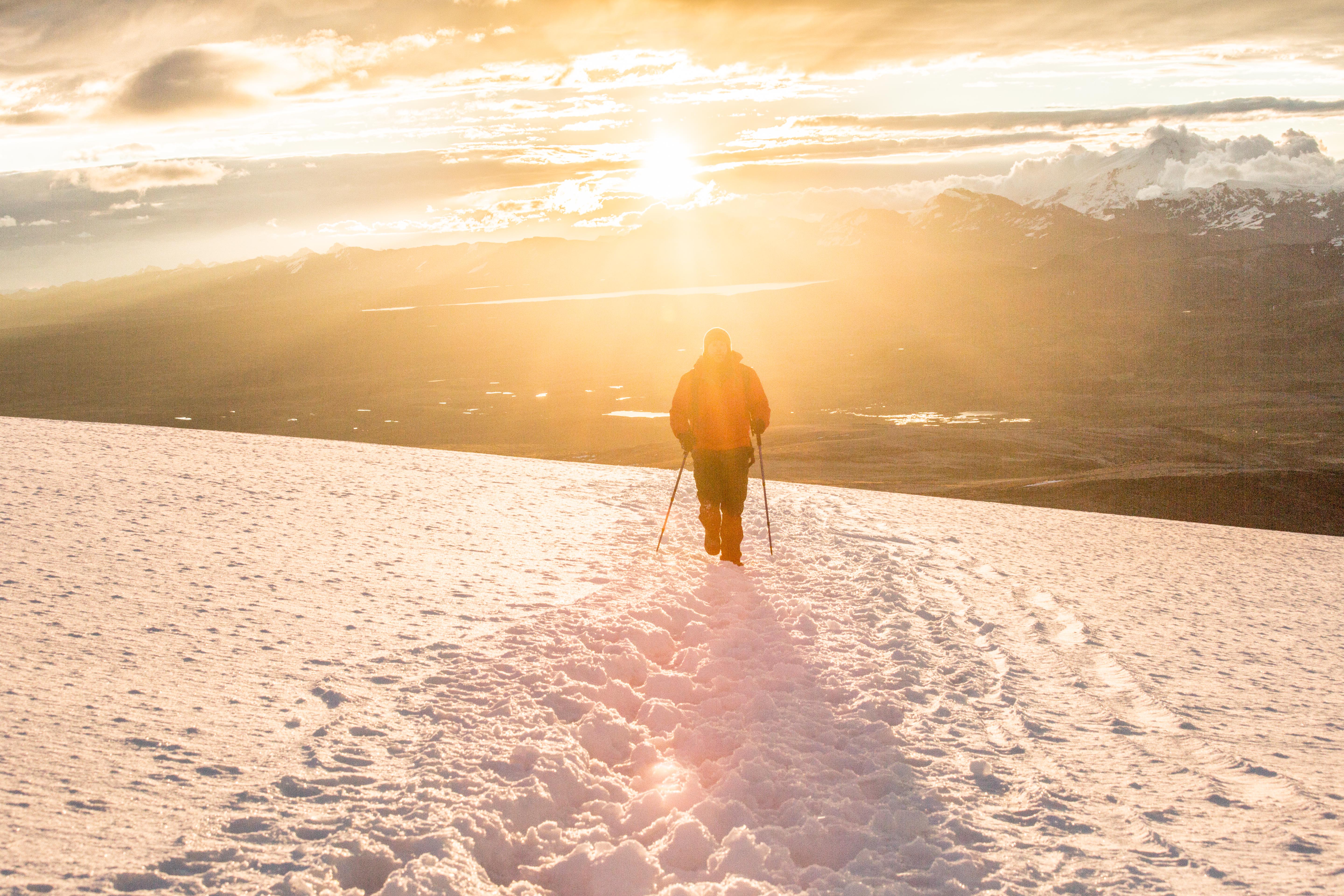Neuroscientist Turned Documentarian Makes Scientists into On-Screen Heroes
-
-
Slice of MIT
Filed Under
Recommended

Alex Rivest PhD ’11 first met TV producer Danny O’Malley, a college friend of his wife, over dinner in Los Angeles. As everyone does when they show up in LA, Rivest says, he pitched O’Malley an idea.
“I said, ‘I’m a scientist, and I don’t really like science programming. It always feels a little bit like homework to me,’” he recalls. “I told him that I want to like it more than I do, and I watch it because I feel like I should, but I don’t feel connected to it.” What was missing, he said, was the “human joy of it all,” and what Rivest proposed was to tell stories about the scientists themselves.
“I knew I wanted to tell stories, but I had no idea what that first step could or should be,” Rivest says.

O’Malley, known for his work on the Netflix series Chef’s Table, agreed. “So, we set out to find out what stories existed in the world of science,” Rivest says.
A neuroscientist who studied brain circuits underlying episodic memory formation in the Tonegawa Lab at MIT, Rivest says he left the academic path he’d been on to fundamentally change the way scientists are seen on screen. His unconventional transition from neuroscience to filmmaking was a long time coming.
“I knew I wanted to tell stories, but I had no idea what that first step could or should be,” he says. “Prior to moving to LA, I had created a few short videos—one has 69 million views on YouTube—where I would show something amazing I had seen in the world, and I would write a blog post about the science behind it. I knew I had something to say to try and connect people to science, but I was thinking a lot smaller.”
Rivest says that he and O’Malley set out to “prove that scientists are interesting,” and although they were initially met with hesitation when pitching their concept, their persistence eventually earned them a grant from the Alfred P. Sloan Foundation. Rivest then turned his skills as a researcher toward developing a list of scientists with inspiring stories (current tally: 583).
Their first collaboration focuses on paleoclimatologist and glaciologist Lonnie Thompson, who for more than 40 years has drilled and analyzed ice cores from ice caps and mountain glaciers to learn about Earth’s climate and how it is changing. In September, they released Canary, a feature-length documentary they directed and produced that follows Thompson on several expeditions, including to a glacier 18,000 feet up in the Peruvian Andes. (The film is now widely available on demand, and Rivest will hold a Q&A after a screening at MIT on December 16.)

Thompson was an ideal subject for two reasons. First, Rivest says, he’s been an expert in his field long enough to recognize that data alone isn’t enough to convince people that glaciers around the world are shrinking. And second, he has experienced the consequences of ignoring data on a very personal level: He was diagnosed with congestive heart failure in 2009 and told he needed a heart transplant, but he chose to continue his grueling high-altitude expeditions instead. His health finally deteriorated to the point where doctors feared he wouldn’t survive, and he underwent a transplant in 2012 at age 63.
Thompson’s acknowledgment of his own denial in the face of scientific fact added a crucial emotional component to the film, Rivest says: “Facts can stir up emotion, but nothing stirs up emotion like a human story.” Thompson’s willingness to go deep on camera about both his work and his personal journey made Canary possible. “His life was a perfect parallel for what we were trying to do,” Rivest says.
Rivest says Canary was a learn-as-you-go experience that let him get involved in filming, editing, and coordinating with composers and the graphics team. “I learned long ago that to do big things, you need to surround yourself with people who share the dream and people who are more skilled than yourself and can fill in all the gaps you have,” he says.
He and O’Malley (along with Canary coproducer Adam Paul Smith) have since started a production company together, End of the Road Films, and are working on a TV series about “the humans who do science, the way they see the world, and why they do what they do,” he says. In particular, they want to inspire kids to become curious explorers.
“I think we need more science heroes,” Rivest says. “To me, the people whose stories I’m trying to tell are heroes, because they follow their passion, they see something that they can’t unsee, and then they fight for it.”








